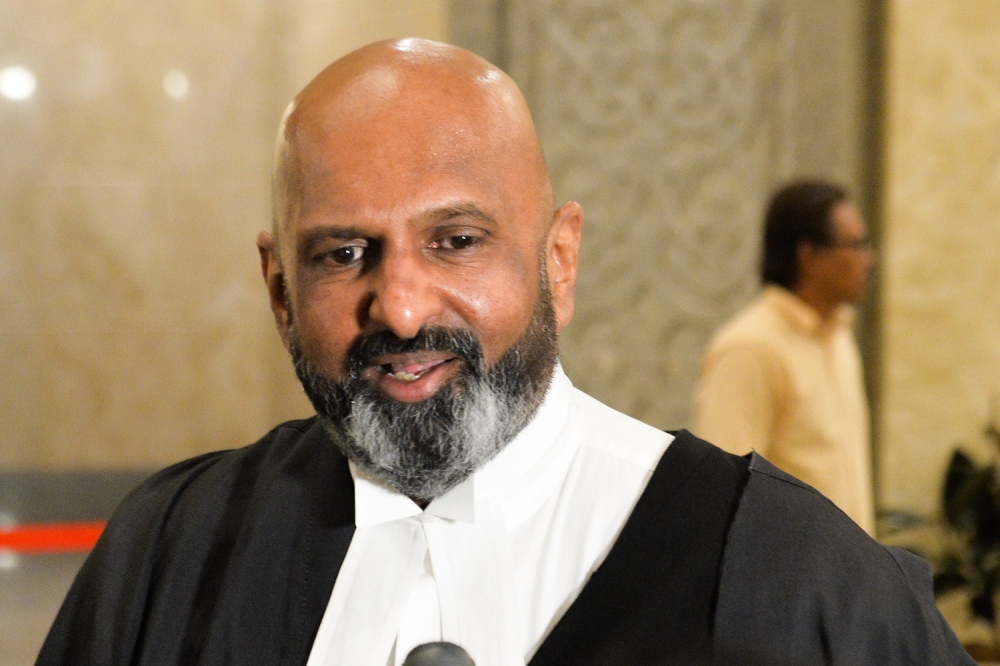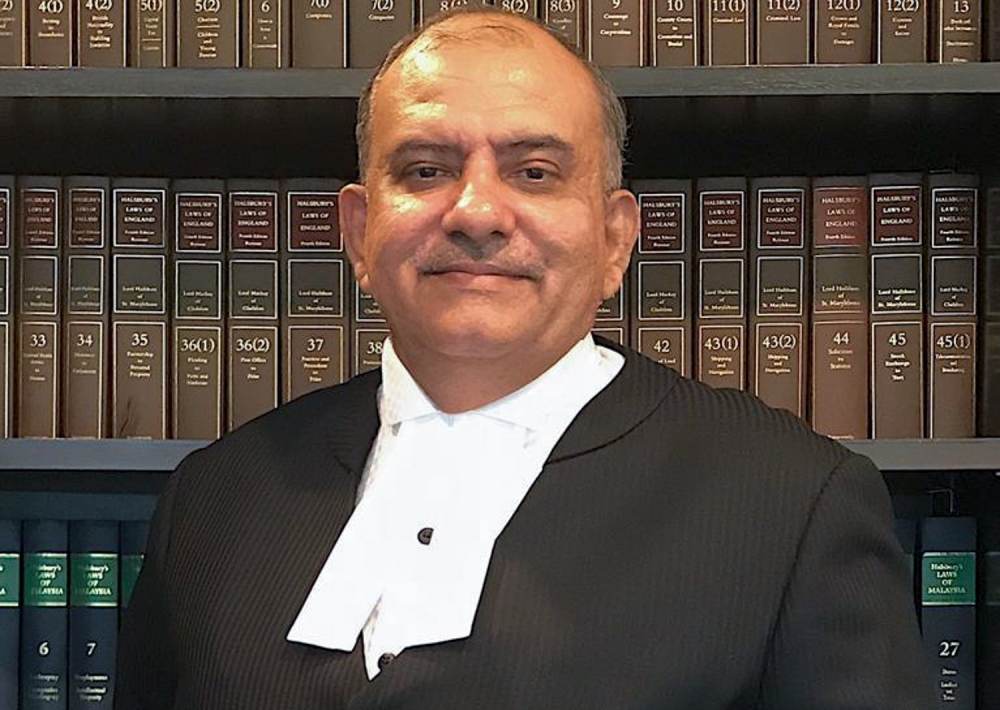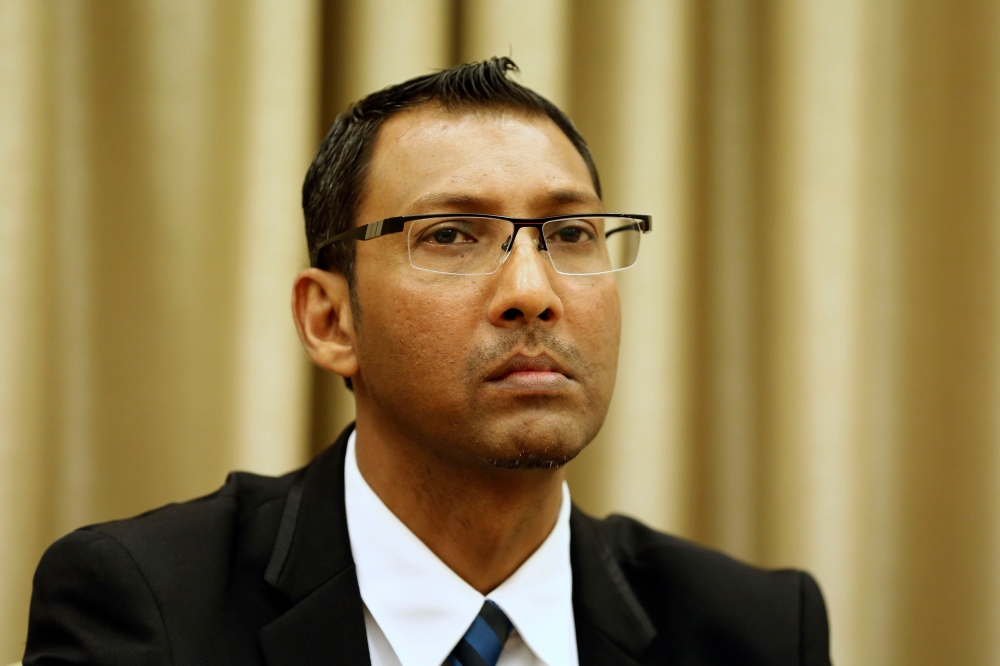KUALA LUMPUR, Nov 14 — Malaysia will not be able to get Australia to send Sirul Azhar Umar — one of two former police commandos convicted for the 2006 murder of Altantuya Shaariibuu in Selangor — back as long as his death sentence remains hanging over his head, lawyers said.
They told Malay Mail that it is now up to Sirul to apply to the Federal Court in Malaysia for his death sentence to be replaced with a jail term and whipping.
But if he chooses not to do so and his death sentence remains, there is nothing that Malaysia can do under current laws to have Sirul extradited from Australia, the lawyers confirmed.
Senior criminal lawyer Datuk N. Sivananthan told Malay Mail that the option of remaining in Australia would be more attractive to Sirul.
“Since Sirul has been freed from detention, he can now remain in Australia indefinitely so I don’t see why he would return to Malaysia where at best a sentence between 30 to 40 years awaits him,” he added.
Sirul had been in immigration detention in Australia for close to a decade, after he absconded there before the Federal Court’s 2015 decision which restored his murder conviction.
At that time, the mandatory penalty for murder was the death sentence. Australia has so far declined to deport or send him back to Malaysia due to his death sentence here.
But Malaysia in July abolished the mandatory death penalty for offences such as murder and in September allowed Death Row prisoners to apply for review of their death sentences, while Australia recently released him from an immigration detention centre there due to a court ruling disallowing indefinite detention of those who cannot be deported from Australia.
Under the Abolition of Mandatory Death Penalty Act 2023, the courts will now have the option of choosing between giving a death sentence or other alternatives for certain offences, including the offence of murder.
This is unlike previously when it was compulsory or mandatory to give out a death sentence for such offences.
Under this new law, murder is now punishable with either the death penalty; or the alternative of between 30 and 40 years’ jail and whipping of not less than 12 strokes.
Sivananthan said that the maximum whipping that Sirul could face is 24 strokes, based on the maximum limit of whipping under Section 288 of the Criminal Procedure Code for all offences in Malaysia.
If Sirul’s death sentence is replaced with imprisonment, he could potentially serve between 20 and 27 years if he displays good behaviour as a prisoner, as it would enable him to have a one-third remission or reduction of his jail term, Sivananthan said.

1. How can Sirul’s death penalty be replaced with imprisonment?
But first, how does the process work?
After Malaysia abolished the mandatory death penalty, prisoners on Death Row can now apply within 90 days from September 12, 2023 — which is when a new law called the Revision of Sentence of Death and Imprisonment for Natural Life (Temporary Jurisdiction of the Federal Court) Act 2023 kicked in — to the Federal Court to have their death sentences reviewed.
This means the last day for Sirul to file such an application to the Federal Court is December 11, 2023. (But Section 3(3) of the new law also allows the Federal Court to extend the 90-day deadline “if it considers that there is a good reason for doing so.)
But lawyers said that Sirul has to be the one to ask the courts to consider changing his death sentence to imprisonment, and that both the Malaysian government and the Malaysian courts cannot be the ones initiating this.
Sivananthan said Sirul’s death sentence will remain in place if he does not apply to have it reviewed.
“To commute the death sentence under the new review provisions, there must be an application from the convicted person i.e. it cannot be done unilaterally. So in the absence of the same the death sentence imposed on Sirul remains,” he said.
Former Malaysian Bar president Salim Bashir Bhaskaran confirmed that a court decision cannot be made to replace it with imprisonment if Sirul does not file any such application.
“No, the court is not able to do so on their own volition. The application needs to be heard on substance and reasons for the court to consider commuting it to prison sentence,” the senior criminal lawyer said.
Senior criminal lawyer Datuk Baljit Singh Sidhu confirmed that the Malaysian government cannot unilaterally replace Sirul’s death sentence with imprisonment, and that prisoners are the ones that have to “apply for reduction” of their sentences.
“In fact there are a few prisoners in Malaysia not requesting for reduction, thereby cannot proceed to reduce unilaterally,” the writer of the Criminal Litigation Process book said.

2. A Catch-22 problem
Sivananthan said Sirul could file an application for review of his death sentence while he is still in Australia, but will have to be present in Malaysia for the review hearing at the Federal Court.
He said an online hearing would not be feasible or be allowed, as the court order would not be enforceable if Sirul is in Australia and the matter would then become academic.
However, Sirul would face the risk of still having to face the death penalty if he fails in his review, with Sivananthan saying: “Exactly, but even if he gets the alternative, it is not exactly attractive as he will be in prison for a minimum of 20 years.”
This would pose an obstacle to Australia sending Sirul back to Malaysia in the first place for the review hearing to even take place, since there is still the prospect of a death sentence.
3. Is it impossible to extradite Sirul from Australia?
Sivananthan said: “In view of the above, Malaysia will still face the same hurdle as previously i.e. that Australia will not entertain any application for extradition in view of the death sentence awaiting Sirul here.”
He said the Malaysian government cannot undertake or promise “not to impose the death sentence on him” as it is not within its powers to do so and as “that would theoretically mean usurping the powers of the court to decide on sentence”.
While the prosecution can agree on the alternative punishment if Sirul seeks for a review of his death sentence, the prosecution’s views would not be binding on the court, as it is for the courts to decide whether to replace his death penalty if he files for review, Sivananthan confirmed.
“So I think it’s still a stalemate,” he said, regarding the prospects of having Sirul extradited to Malaysia.
Salim said Malaysia is able to request Australia to use its extradition law to extradite Sirul “in light of abolishment of the mandatory death penalty” in Malaysia.
But Salim said: “The chances are the request of extradition might be turned down if the death penalty on Sirul is maintained.”
Salim confirmed that the Malaysian government cannot make any decision to replace Sirul’s death sentence with imprisonment and it must be the court that decides, noting that the Attorney General’s Chambers (AGC) can only take a position at court on whether it supports the review application.
He said he was “not aware of any past precedents” of successful extradition to Malaysia from Australia based on any promises to not carry out death sentences, and said the government is not in a position to make such promises as it is for the court to make the decision.
Baljit said Australia would not extradite Sirul to Malaysia even if he does apply for a review, as the death penalty is hanging over his head and the review does not necessarily result in his death sentence being replaced with imprisonment.
Asked what the Malaysian government can then do in order to get Sirul extradited from Australia, Baljit said: “The way I see it — nothing.”

4. Can Sirul remain in Australia without facing conviction consequences?
Salim said that Sirul may no longer have good reasons for remaining in Australia, if he does not take up the chance of seeking a review of his death sentence.
“Sirul has absolute discretion not to file a review application to commute his death sentence, hence his earlier death penalty remains. However he may not be able to justify the earlier reasoning to keep staying in Australia when Malaysia has abolished the mandatory death sentence and he did not avail himself of an opportunity to review the death penalty accorded to all those convicted and sentenced to death,” he said.
As for whether Sirul can then stay on in Australia if he does not file a review of his death penalty, Salim indicated that this was uncertain and not guaranteed, stating: “That’s an absolute prerogative of the Australian government to grant him that privilege.”
Sirul’s son Shukri Azam was in May reported urging Australia to grant them asylum, and had reportedly said that both of them do not intend to return to Malaysia and also expressed worry for his father’s life if they return.
At the time of writing, Malay Mail has yet to receive a response from Sirul’s lawyer in Australia.
The Malaysian police on Sunday said it would discuss with the relevant parties such as the Attorney General’s Chambers on the possibility of seeking for Sirul to be brought back to Malaysia, as it involves the Malaysian and Australian governments.
Azilah Hadri, the other former police officer who was also convicted of the 2006 murder, is currently still in prison since the 2015 Federal Court decision.
Local news daily Utusan Malaysia yesterday cited an anonymous source when saying that he is still waiting for the Pardons Board to decide whether to maintain his death sentence or to grant him clemency.






















